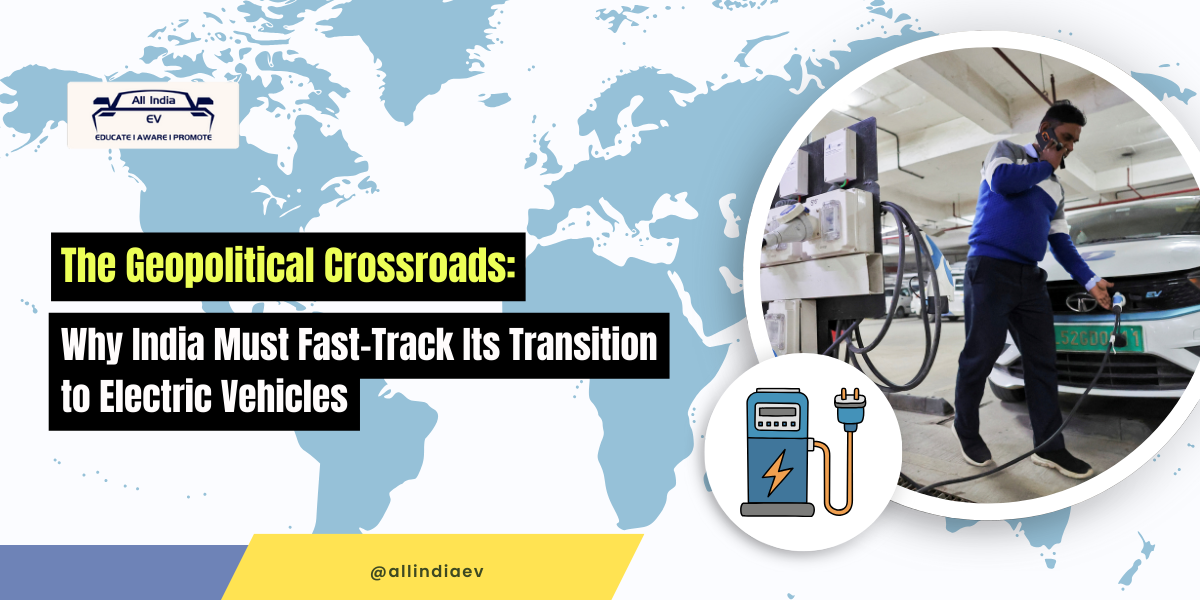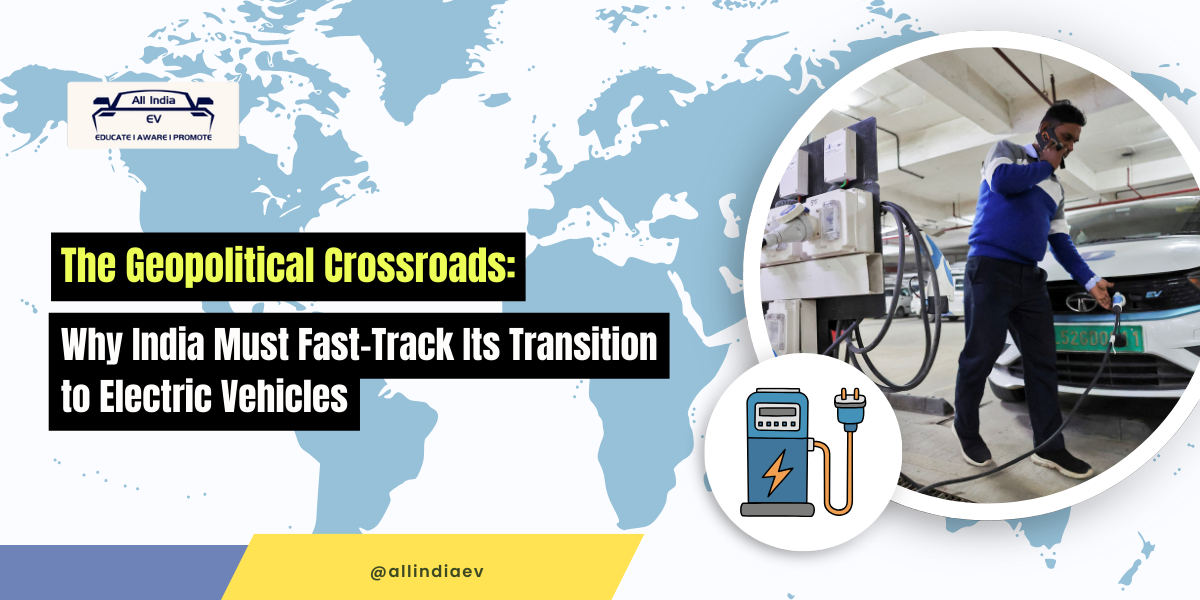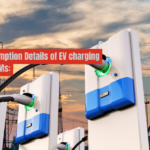
The Geopolitical Crossroads: Why India Must Fast-Track Its Transition to Electric Vehicles
As global geopolitical conflicts intensify, India finds itself at a critical juncture regarding its energy security. The ongoing Russia-Ukraine war, increasing tensions in the Middle East, and India’s strategic ties with key oil-producing nations like Iran, Russia, and Israel have amplified the country’s vulnerabilities. India’s reliance on imported crude oil, particularly from volatile regions, makes it highly susceptible to global oil supply shocks, putting its economic stability at risk.
India’s Energy Security: A Geopolitical Vulnerability
India’s dependence on oil imports is one of the highest in the world. Over 85% of the country’s crude oil needs are met through imports, primarily from the Middle East. In 2022-23, India imported 212 million metric tons (MMT) of crude oil, with an expenditure of around $160 billion, making it the third-largest oil importer globally.
The strategic risk of this dependence is amplified by the ongoing tensions in the Middle East—a region that provides a significant portion of India’s oil. Iran, a key player in regional geopolitics, has the potential to leverage its influence over OPEC and other Gulf oil producers. In the event of an escalation in the Israel-Iran conflict, Iran could push for oil price hikes or supply restrictions against countries that support Israel, including India. This would have severe repercussions on India’s economy, which is deeply tied to affordable and uninterrupted oil imports.
In this context, India’s geopolitical strategy of balancing relations with both Israel and Iran becomes increasingly difficult to maintain. Any disruption in oil supplies from these regions could trigger an economic crisis, as the transportation sector—which consumes about 40% of imported oil—would be severely impacted, leading to widespread consequences across manufacturing, agriculture, and consumer markets.
The Economic Imperative for Electric Vehicles
In this precarious geopolitical climate, transitioning to electric vehicles (EVs) offers a crucial pathway for India to reduce its oil dependency and insulate its economy from external shocks. The transportation sector, as one of the largest consumers of imported oil, is central to India’s energy security challenges. Nearly 40% of India’s oil imports are used to produce gasoline and diesel for vehicles. By transitioning a significant portion of the transportation sector to EVs, India could dramatically reduce its oil consumption, thereby minimizing its exposure to global oil price volatility.
Adopting EVs would help India achieve a greater degree of energy independence, allowing the country to reduce its reliance on oil from geopolitically unstable regions. This transition would not only lessen the impact of geopolitical conflicts on India’s economy but also help to decrease the trade deficit, which reached $191 billion in FY 2022-23, a large portion of which is due to oil imports.
Reducing Geopolitical Exposure: Lessons from the Middle East and Russia
India’s strategic ties with oil-producing nations like Russia and Iran expose it to a series of geopolitical risks. The ongoing Russia-Ukraine war has already led to significant fluctuations in global oil prices. Although India has been able to secure discounted oil from Russia, this is a short-term solution and not a sustainable strategy in the long run. The volatility in global oil markets due to sanctions, changing alliances, and supply chain disruptions remains a constant threat to India’s energy security.
Similarly, rising tensions between Iran and Western powers—coupled with Iran’s influence in OPEC—could lead to further disruptions in oil supplies. The Middle East has historically been prone to conflicts that impact global oil production and pricing, and India’s reliance on oil from this region ties its economic fortunes to the resolution of these conflicts—something that is largely out of India’s control.
By adopting EVs at scale, India can decouple its economic future from the geopolitical uncertainties of the oil market. A well-executed transition to electric transportation could reduce India’s dependence on oil imports by as much as 40%, making it far less vulnerable to the shocks and disruptions caused by global conflicts.
Strategic Benefits of Electric Vehicles
The move toward electric vehicles provides India with the strategic flexibility it currently lacks in its energy policy. By reducing oil consumption through EV adoption, India can avoid being drawn into conflicts between major oil-producing nations and their geopolitical adversaries. This would allow the country to take a more neutral stance in international disputes, without risking energy security or economic stability.
Moreover, the economic benefits of transitioning to EVs extend beyond just reducing oil imports. The Indian government has been encouraging domestic EV production through initiatives such as FAME II (Faster Adoption and Manufacturing of Hybrid and Electric Vehicles), which aims to create an ecosystem for EV manufacturing and support the deployment of 1 million electric two-wheelers, 55,000 electric cars, and 7,000 electric buses by 2024. This domestic production would reduce India’s reliance on foreign oil and increase job creation and technology investments in the local economy, further enhancing India’s economic resilience.
Conclusion: A Geopolitical and Economic Imperative
India stands at a crucial crossroads where its energy security and economic future are increasingly influenced by global conflicts and oil supply vulnerabilities. With over 85% of its oil needs being met through imports, the country’s dependence on volatile oil markets puts it in a position of geopolitical risk. The ongoing tensions in the Middle East and Russia-Ukraine war serve as clear reminders that oil dependency leaves India vulnerable to external shocks beyond its control.
However, the path forward is clear. By accelerating the adoption of electric vehicles, India can significantly reduce its reliance on imported oil, insulating its economy from the impact of global geopolitical crises. This transition will not only enhance economic stability but also allow India to maintain greater neutrality in international conflicts involving oil-producing nations.
The time for action is now. As the global energy landscape continues to shift, India must take proactive steps to prioritize EV adoption, reduce its exposure to geopolitical risks, and secure a future of greater energy independence and economic resilience.










